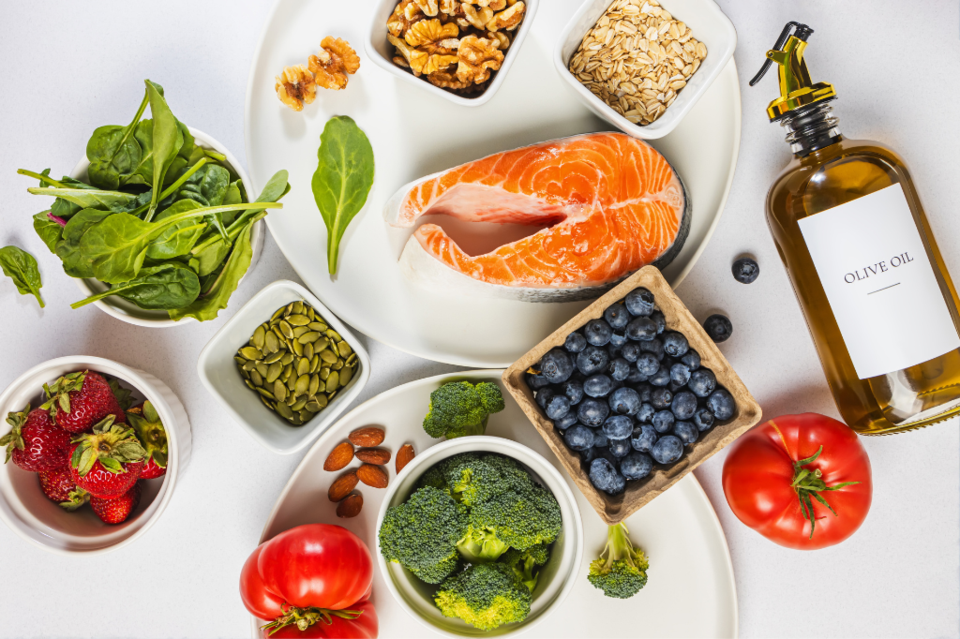We’ve all heard of it before, but what does inflammation in our bodies really mean? Inflammation is a natural response by the body to protect against harm—think of bumping into something and the swelling that ensues—that’s acute inflammation.
But inflammation can become more of a significant health concern when it’s chronic, meaning you live in an inflamed state on a regular basis. Prolonged, chronic inflammation is associated with various health issues, including arthritis, heart disease, diabetes, and even allergies. The good news is that we have a powerful tool at our disposal to help treat inflamation—our diet.
Whether you’re looking to prevent inflammation or reverse it, we’ve got the top 10 anti-inflammatory foods that not only taste fantastic but are backed by science to kick inflammation to the curb—and creative suggestions for how to prepare them. Let’s dig in!
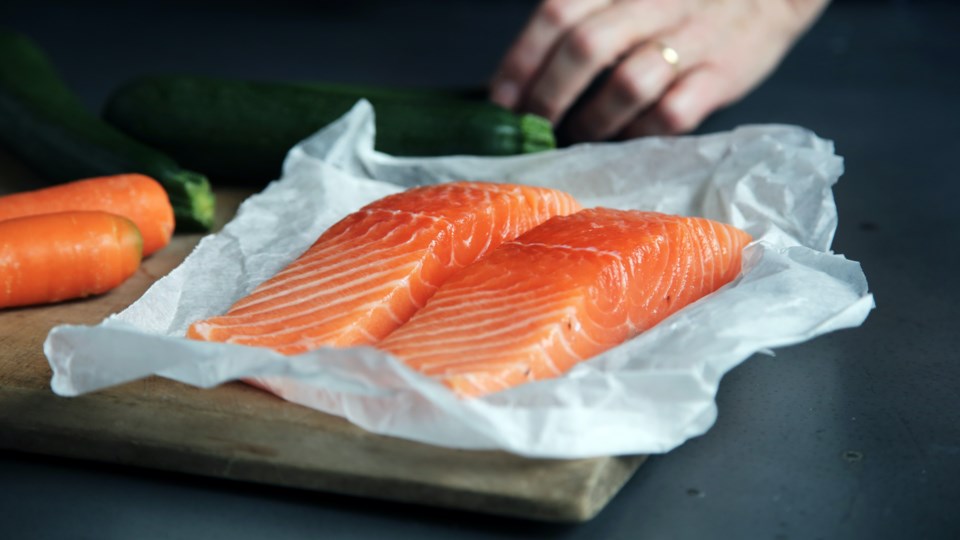
-
Fatty Fish (Salmon, Mackerel, Sardines)
Fatty fish like salmon, mackerel, and sardines are swimming in omega-3 fatty acids, specifically EPA and DHA, which are known for their potent anti-inflammatory effects.
Why they are powerful: Omega-3s interfere with immune cells and cytokines (proteins that affect the growth of blood cells), both of which are key players in the body's inflammatory response.
Preparation tips: Grill or bake your fish of choice with lemon and herbs like parsley and dill, add smoked salmon to salads or enjoy sardines on whole-grain crackers.

-
Turmeric
Turmeric is a bright yellow spice derived from the Curcuma longa root and contains an active compound, curcumin, long used in both cooking and medicinal applications thanks to its strong anti-inflammatory and antioxidant properties.
Why it's powerful: Known for its anti-inflammatory properties, turmeric may help with conditions like osteoarthritis and chronic pain. It may also increase mobility in people with stiff joints. In one study, taking turmeric extract three times a day showed results comparable to a daily 1,200-milligram ibuprofen dose.
Preparation tips: Make turmeric tea or create a golden milk latte with almond milk and honey. You can add turmeric to curries, rice, and roasted vegetables or stir it into hummus.
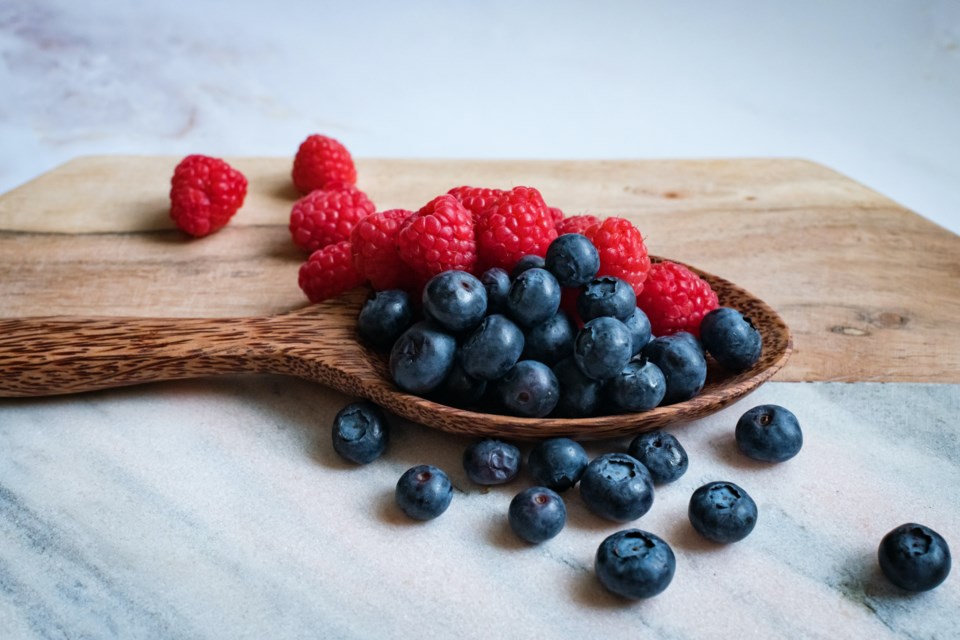
-
Berries
Berries, such as blackberries, blueberries, strawberries, and raspberries, are packed with antioxidants like quercetin and anthocyanins, potent inflammation fighters.
Why they are powerful: Along with fibre and vitamin C, berries contain phytochemicals like anthocyanins linked to lower risks of heart disease, Alzheimer's and diabetes.
Preparation tips: Blend berries into smoothies, top yogurt or pancakes with fresh berries or enjoy as a snack.
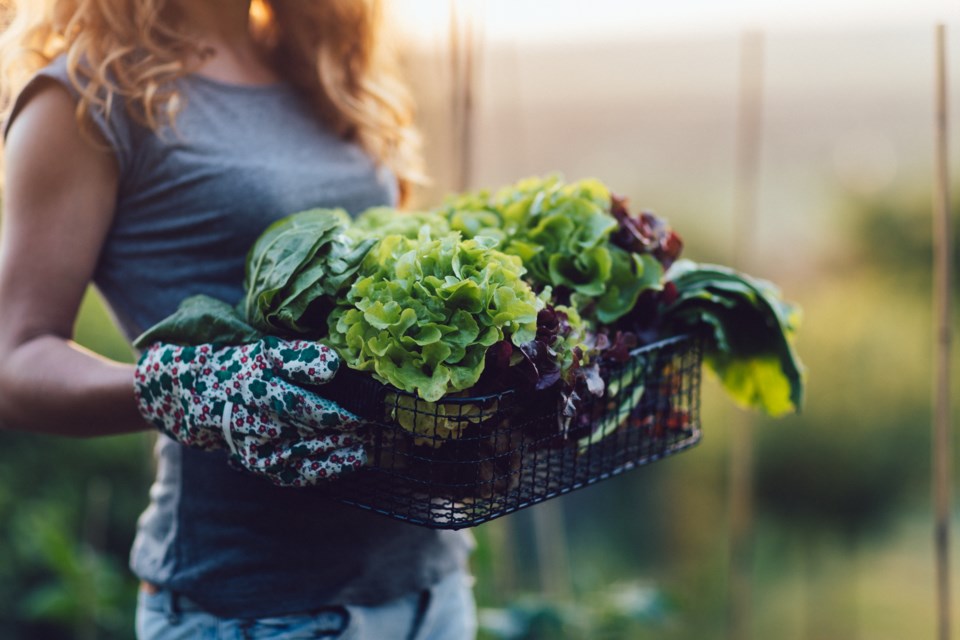
-
Leafy Greens
Leafy greens like kale, spinach, and Swiss chard are high in vitamins, minerals, and antioxidants, supporting overall health with a particular emphasis on inflammation.
Why they are powerful: A review published by the British Journal of Nutrition highlighted studies backing the idea that dietary polyphenols reduce inflammation and enhance blood vessel cell function.
Preparation tips: Sauté leafy greens of choice with garlic and olive oil or simply add to salads or soups (at the end of cooking) or blend into smoothies.
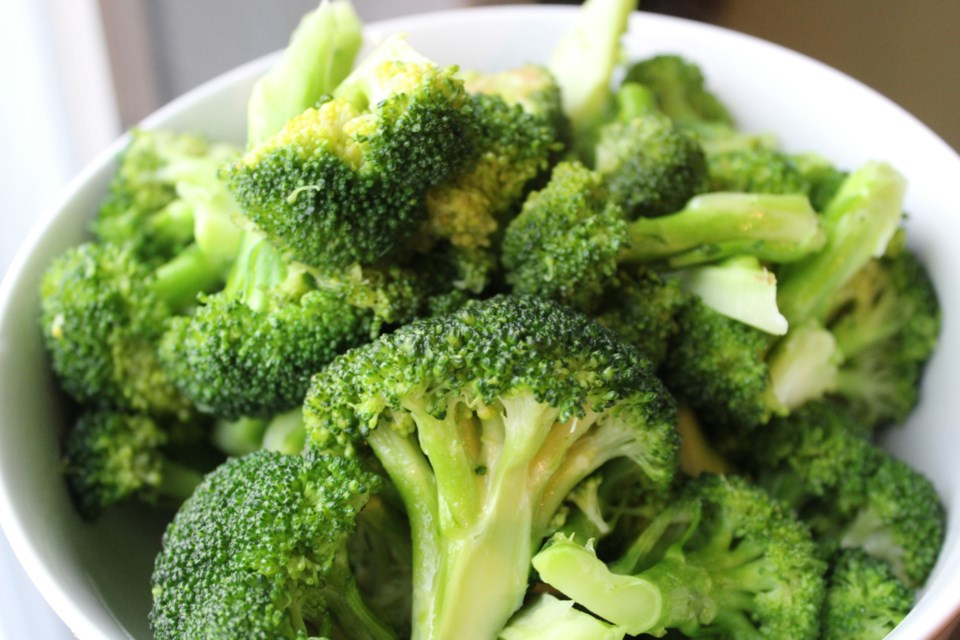
-
Broccoli
Broccoli contains sulforaphane, a compound with anti-inflammatory and antioxidant properties.
Why it's powerful: Sulforaphane inhibits the production of inflammatory substances and reduces inflammatory markers.
Preparation tips: Steam or roast with olive oil and lemon juice. Add to stir-fries or enjoy raw with hummus.

-
Olive Oil
Extra virgin olive oil (EVOO) is rich in monounsaturated fats and polyphenols with well-studied anti-inflammatory effects.
Why it's powerful: Oleocanthal, an antioxidant in olive oil, works similarly to ibuprofen, effectively reducing inflammation.
Preparation tips: Use EVOO in salad dressings, drizzled over roasted vegetables, as a finisher for homemade or store-bought soups, or to enjoy on whole-grain bread.

-
Nuts and Seeds
Nuts and seeds, such as almonds, walnuts and flaxseeds, are high in omega-3 fatty acids, fibre, and antioxidants.
Why they're powerful: Certain nuts, specifically almonds and walnuts, help to lower inflammation—as well as oxidative stress—in the body.
Preparation tips: Snack on a handful of nuts, sprinkle seeds on yogurt or a combination of nuts and seeds on salads or add almond butter to smoothies.
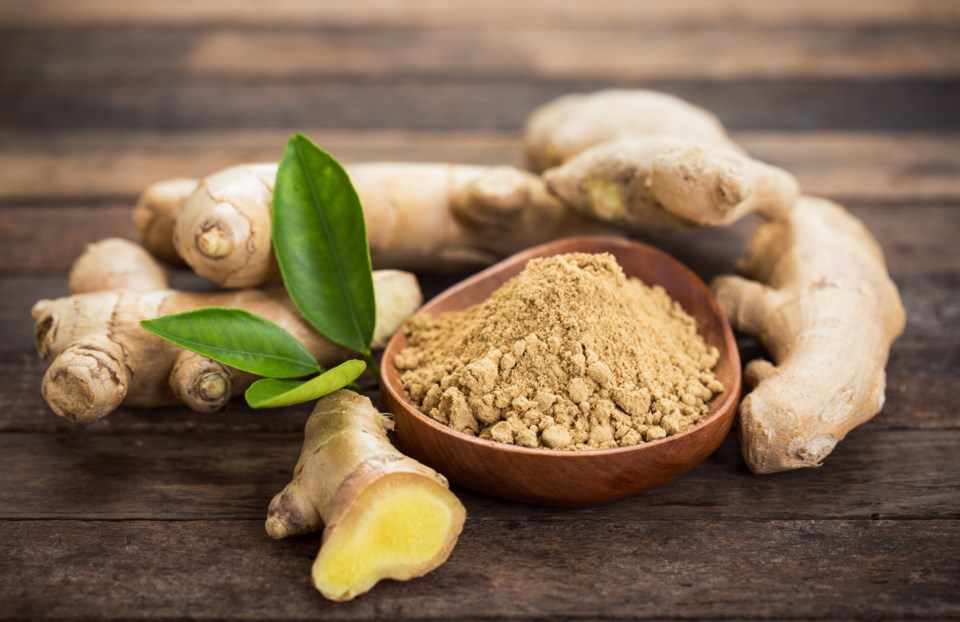
-
Ginger
Ginger contains gingerol, a bioactive compound with proven anti-inflammatory and antioxidant effects.
Why it's powerful: Ginger contains more than 400 natural compounds, some of which contain anti-inflammatory properties.
Preparation tips: Add freshly sliced ginger root to hot water for ginger tea. Add fresh ginger to stir-fries or blend into salad dressings. Use ginger as a spice in soups and curries.
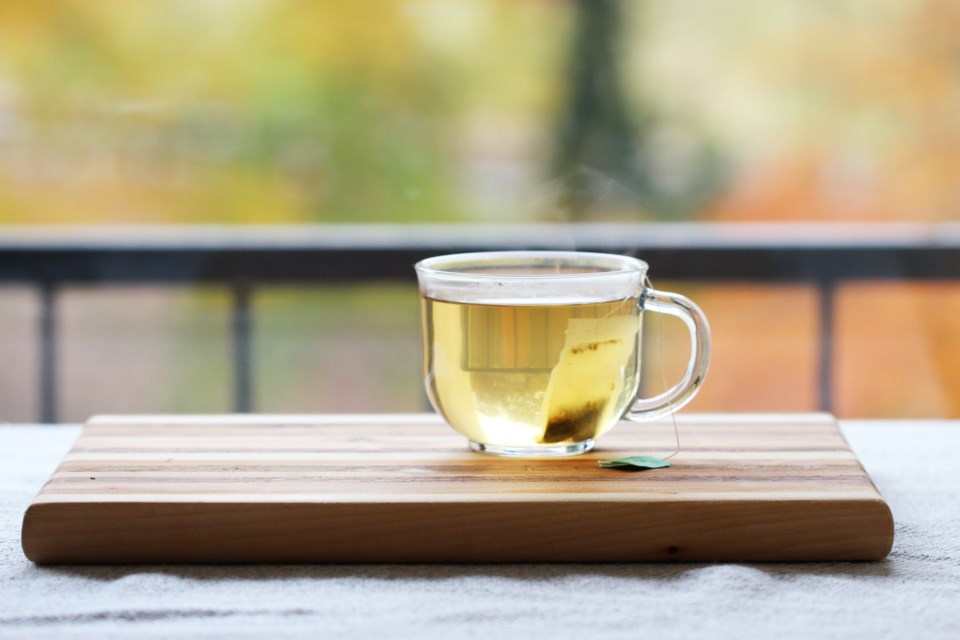
-
Green Tea
Green tea is rich in polyphenols, especially catechins, with potent anti-inflammatory and antioxidant properties.
Why it's powerful: Green tea contains epigallocatechin gallate (EGCG), a type of catechin and a potent antioxidant. EGCG has multiple targets, acting in a pleiotropic manner to improve the quality of life in inflammatory diseases.
Preparation tips: Drink as a beverage or use as a base for smoothies. Experiment with iced green tea for a refreshing drink option.
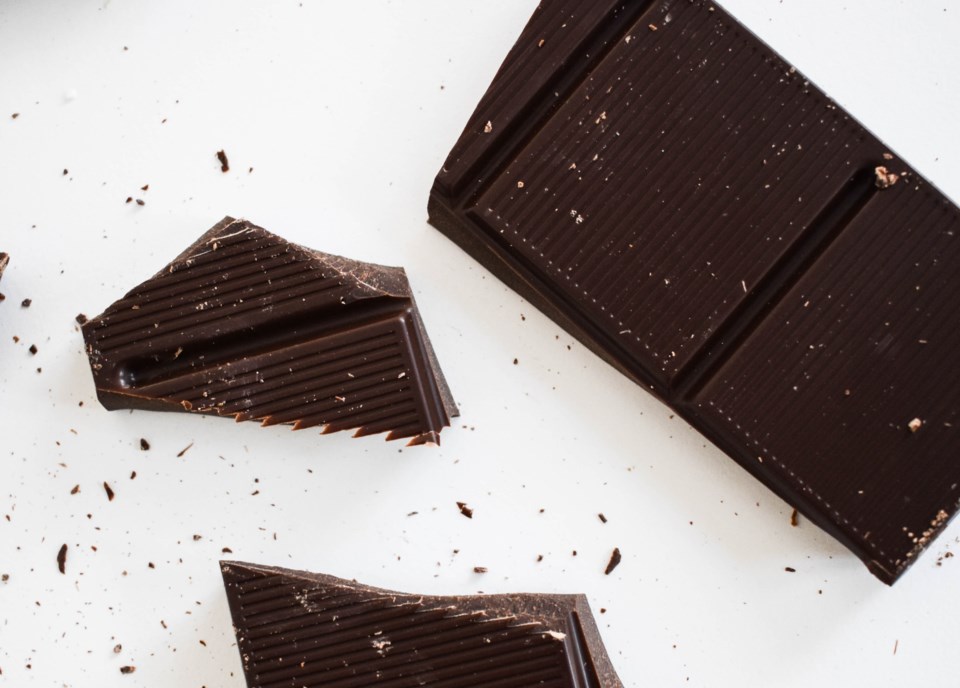
-
Dark Chocolate
Dark chocolate with high cocoa content— at least 70% cocoa, but the higher, the more potent, contains flavonoids with anti-inflammatory effects.
Why it's powerful: Flavanols in dark chocolate reduce inflammation and support artery health.
Preparation tips: Snack on dark chocolate with 70% or higher cocoa content. Incorporate it into recipes like smoothies or desserts.
About the Author

Alicia is a journalist and editor in digital and print media specializing in health, nutrition, fitness, and wellness. She was previously the Editorial Director of Clean Eating and Vegetarian Times. Her work has also appeared in Hone Health The Edge, Yoga Journal, Women’s Running, and Oxygen, among others. In addition to being a content creator, she's an ISSA-certified nutritionist, certified personal trainer, and fitness studio owner in Toronto. Alicia loves spreading the word about helpful, science-backed health information, and she can be contacted via her website at aliciamtyler.com.

